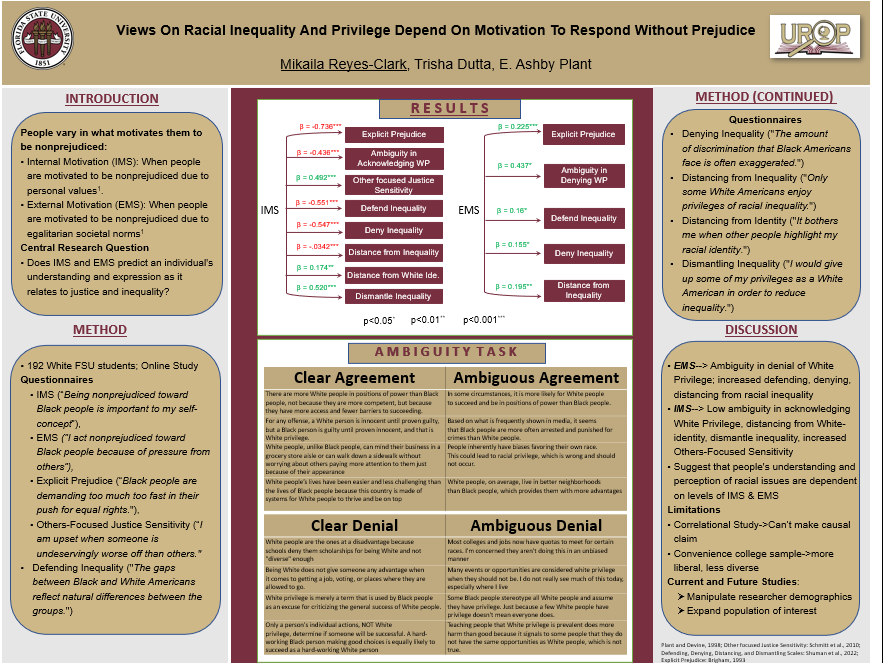Research Symposium
23rd annual Undergraduate Research Symposium, April 6, 2023
Mikaila Reyes-Clark Poster Session 2: 1:30 pm - 2:30 pm/ Poster #385

BIO
Hi everyone!
My name is Mikaila and I am a second-year Psychology major student who has spent the 2022-2023 academic year aiding the Plant lab in their research which examines intergroup motivations and their relationship with social issues like prejudice, White privilege, and racial inequality (to name a few).
From personal experience to what is seen on news channels, inequality, and prejudice are issues that affect a large amount of the population around the world. As someone who is passionate about helping others and change, I was drawn to join the Plant lab because I believe that these studies are extremely relevant.
In the future, I hope to continue to build on our findings and construct experiments whose results can lead to monumental, lasting changes in our society.
Views On Racial Inequality And Privilege Depend On Motivation To Respond Without Prejudice
Authors: Mikaila Reyes-Clark, Trisha DuttaStudent Major: Psychology
Mentor: Trisha Dutta
Mentor's Department: Department of Psychology Mentor's College: Florida State University Co-Presenters:
Abstract
White individuals differ in what motivates them to be non-prejudiced towards Black people: external and internal. Internal Motivation to be non-prejudiced (IMS) is when people are motivated to be non-prejudiced due to personal values. Conversely, external motivation to be non-prejudiced (EMS) is when people feel compelled to be non-prejudiced due to egalitarian societal norms. In the current study, we examined the relationship between IMS and EMS,
explicit prejudice, preference for ambiguity, justice sensitivity, and perceptions of inequality. We found that IMS was related to a higher likelihood to select non-ambiguous statements when acknowledging White privilege, more distancing from their White-identity, higher willingness to dismantle inequality, and increased Other-Focused Justice Sensitivity. In contrast, we found that External Motivation to be nonprejudiced was related to a higher likelihood to choose ambiguous statements when denying White privilege, and more defending, denying, and distancing from racial inequality. These findings suggest that people’s understanding and perception of racial issues are dependent on their levels of internal and external motivations.
Keywords: external motivation, internal motivation, racial inequality, prejudice


